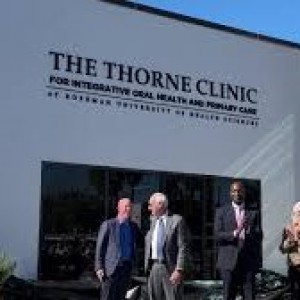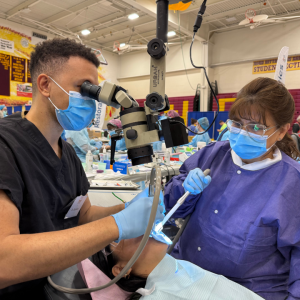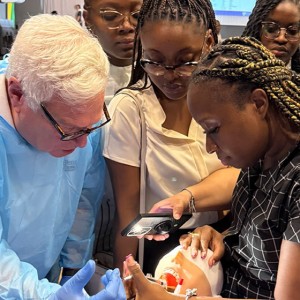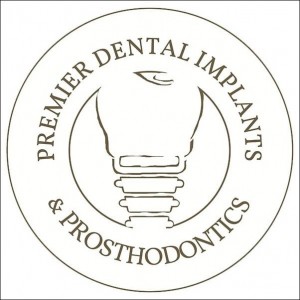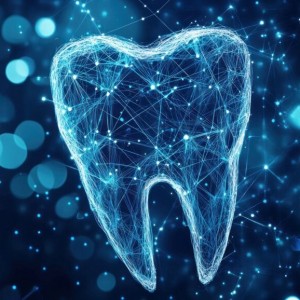
10-year study on periodontal health in reduced dental arch rehabilitation
Lara Figini
Current aging populations are expected to retain more teeth associated with a high burden of periodontal diseases . In elderly patients, the concept of shortened or reduced dental arch (SDA) could offer options for solving these periodontal problems. The term SDA is commonly used to indicate the conditions in which all the anterior teeth are present up to both premolars on both sides, with the absence of molars. Over the past twenty years, a substantial number of studies have added evidence to support the concept of SDA. Conversely numerous studies have shown that partial removable restorations (PRDP) in particular can have an unfavorable impact on periodontal health and therefore on the survival of residual teeth.
Materials and methods
In a randomized controlled clinical trial, published on Journal of Prosthodontic Research ,October 2020, the authors compared periodontal health ten years later in patients who had lost molars and rehabilitated with removable appliances to replace molars or in which it was kept the dental arch reduced up to the second premolars. In the partial removable denture (PRDP) group (n = 79), the molars were replaced with a precision attachment. In the SDA group (n = 71), the short dental arch was left up to the second premolars rehabilitated with fixed dental prostheses. Outcome variables were loss of vertical clinical attachment (CAL-V), probing depth of pockets (PPD), bleeding on probing (BOP), and plaque index (PLI). For CAL-V and PPD,. The measurements were taken at six points for each tooth. Statistical methods included linear regression analysis.
Results
In the 10-year analyzes, significant differences were found between the two groups for CAL-V, BOP and PLI but not for PPD. In the 10-year PRDP group there was an increase of 0.72 mm for CAL-V for all teeth and 0.66 mm for the maxilla analyzed. However, in the SDA group, there were hardly any changes over 10 years. For PPD, there were no significant differences between groups. Evaluation of BOP rates over time, for the PRDP group, showed a trend towards increasing values with time for all teeth and jaw analyzed in the study. In the SDA group, however, this clear trend was not found. In the PRDP group, the evaluation of the percentages of plaque over time showed increasing values over time for all teeth, for the jaw analyzed in the study and for the more posterior teeth of the jaw analyzed in the study. In the SDA group, this trend was much less pronounced. Group differences over 10 years ranged from 5.97% to 11.36%.
Conclusions
From the data of this study, which must be confirmed in other similar studies, it can be concluded that there are differences in terms of periodontal health between the two rehabilitation solutions (PRDP vs SDA). Both treatments can be considered viable options from a periodontal point of view. However, the results add further confirmatory evidence to the concept of SDA
Clinical implications
Subjective patient needs and preferences should be care- fully weighted in clinical decision making along with biological and functional considerations when deciding for or against molar replacement with PRDPs.
For further information: Periodontal health in shortened dental arches: A 10-year RCT
 Related articles
Related articles
Editorials 13 November 2025
UW President Robert Jones and Gonzaga University President Katia Passerini joined elected officials in Spokane to tour the Regional Initiatives in Dental Education (RIDE’s) new 13,000-square-foot...
Oral Hygiene & Prevention 07 November 2025
Hashim R. Self-reported oral health, oral hygiene habits and dental service utilization among pregnant women in United Arab Emirates.
Products 29 October 2025
Roseman University of Health Sciences and PDS Health recently celebrated the dedication and ribbon-cutting of the new Thorne Clinic for Integrative Oral Health.
Endodontist Brandon Barnett was set to focus his health law project at Yale School of Public Health on access to care through Medicaid.
Digital Dentistry 15 October 2025
The Impact of Artificial Intelligence on Diagnostic Accuracy and Treatment Planning in Dentistry
The use of AI in dentistry is revolutionizing the field of dentistry by enhancing the accuracy of diagnosis and treatment.
 Read more
Read more
Periodontology 14 November 2025
This study was carried out to assess the oral hygiene awareness and practices amongst patients visiting the Department of Periodontology at Gian Sagar Dental College and Hospital, Ramnagar (Patiala).
Editorials 14 November 2025
Penn Dental Medicine shared its expertise in caring for persons with disabilities with dental care providers from throughout Jamaica at a 1 ½ -day hands-on continuing education program, held October...
News 14 November 2025
Dr. Thomas M. Paumier, a dentist in Canton, Ohio, is the new President-Elect of the American Dental Association (ADA). Dr. Paumier was elected at the ADA House of Delegates meeting in Washington,...
News 14 November 2025
Premier Dental Implants & Prosthodontics is proud to announce the opening of its newly renovated dental office and the launch of its new website
News 14 November 2025
Henry Schein One and AWS Collaborate to Transform Global Dentistry with Generative AI
Industry leaders join forces to bring advanced AI capabilities to dental technology platforms — redefining patient care, clinical efficiency, and practice performance worldwide





